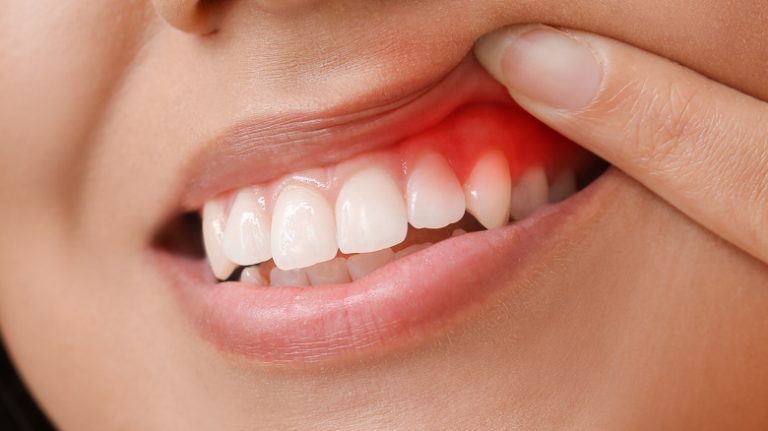Correction 1/11/23: A previous version of this article said tartar can be removed by a dentist. However, dental hygienists also help to remove tartar as this is part of their primary professional role.
When you think about your least favorite chores, flossing your teeth might be right up there with scrubbing the toilet. It’s a bothersome task that could easily be forgotten — but is forgoing flossing bad for your health?
According to the American Dental Association (ADA), cleaning between our teeth with something like dental floss, a water flosser, or a plastic pick cleans out any food left behind, preventing it from rotting and leading to decay. It also removes a layer of bacteria so it doesn’t turn into plaque, which can eventually turn into tartar. Tartar, unfortunately, can only be removed during a professional cleaning by your dentist or dental hygienist, so it’s essential to take good care of your teeth before it gets to that point (per Healthline). If bacteria builds up, brushing can become difficult and lead to gingivitis, which is only the beginning of gum disease. Luckily, flossing reduces plaque that your toothbrush can’t reach, so it’s important to do both every single day.
Most times, flossing is recommended at least once per day, in addition to brushing twice per day. Flossing can be done any time before or after brushing. However, some people floss first since it’s easy to forget or put it off. To find out how often people really floss, we conducted a survey of 612 readers. Here’s what most people said.
The flossing results may surprise you

Turns out, a large number of respondents admitted to flossing daily. For starters, 214 participants making up 34.97% of the responses in the Health Digest survey, reported that they manage to floss their teeth once a day.
The second most popular response with 149 participants consisting of 24.35% of the votes, said that they don’t floss every day but manage to get it done a few times a week. Now, if you only floss a few times a month, you’re not alone. 15.52% of the answers given by 95 people said they just floss a few times a month. However, another 83 respondents, or 13.56% of those polled, said they never floss their teeth at all. Lastly, only flossing once a week were 71 participants making up 11.60% of the total answers.
Since flossing can often be overlooked, it’s best to try a few tricks to help you get into a routine (via Ask the Dentist). Create a cue, for example, to remind yourself to floss, like by sticking a note on your bathroom mirror. Additionally, make flossing convenient for yourself by keeping it in multiple locations, not just inside the medicine cabinet. In other words, keep some inside your office desk, gym bag, or even in the car. And don’t immediately think you’re going to master the perfect routine — give yourself manageable goals to achieve in increments.



